
You are reading:

You are reading:
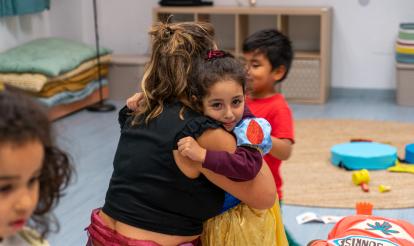
20.11.25
7 minutes readMore than two million children in Spain are living in poverty, a figure that places the country as having the highest child-poverty rate in the European Union. In the Rekalde neighbourhood of Bilbao, we meet some of the more than 40,000 vulnerable families supported by the CaixaProinfancia programme across Spain. On World Children’s Day, the ”la Caixa” Foundation is reaffirming its commitment to the holistic development of children and adolescents living in vulnerable situations.
The fight against child poverty is a priority line of action for the ”la Caixa” Foundation, which will invest more than four billion euros up to 2030 to drive social transformation. Through the CaixaProinfancia programme, created in 2007, it has supported nearly 400,000 children and adolescents throughout Spain, working alongside a network of more than 400 partner social organisations.
Sebastián is three years old and lives in Rekalde, a neighbourhood in Bilbao with a high concentration of vulnerable families. He has been taking part in CaixaProinfancia activities since he was just a few months old. The programme has also provided socio-educational support to his sisters, Amaia (9) and Aitana (5). Their mother, Karol, aged 29, raises her three children alone and relies on the Minimum Income Guarantee to get by. She dreams of her children completing every stage of their education: “That they finish secondary school, sixth form, university. What I wasn’t able to do, I hope they can.”
Stories like this family’s illustrate the purpose of CaixaProinfancia: to prevent vulnerability from being passed down from one generation to the next, and to provide children with sustained support that strengthens their educational, emotional and social development.
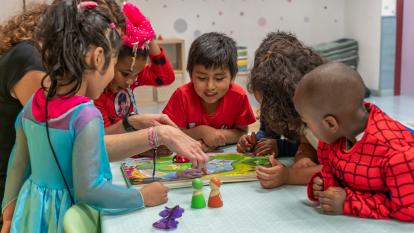


This 20 November, World Children’s Day, the ”la Caixa” Foundation is placing particular emphasis on early childhood, from birth to six years old. It is a crucial stage in cognitive, emotional and social development. The scientific evidence is clear: investing in the earliest years of life is one of the most effective ways to break the cycle of poverty. For this reason, CaixaProinfancia has strengthened its work with two key services:
Sebastián has been through both. He began in the 0–3 group and is now continuing in the 3–6 group, which has just launched as a pilot phase. His mother is confident that this space will give him the support he needs: “I know that being with them is going to help him improve enormously.”
This family takes part in the programme through Gazteleku, one of more than 400 social organisations that deliver CaixaProinfancia across the country. This community development association focuses on improving quality of life for residents in the Rekalde district, which includes some of the neighbourhoods with the highest poverty rates in the Basque Country.
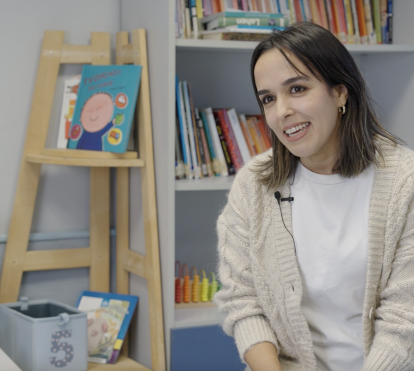
Oihane López is the educator who works with the children in this new Growth Space 3–6 in Rekalde. She is a psychologist and speech therapist, and has been working with children at Gazteleku for over ten years.
Supporting this particular age group is quite different from working with under-threes: “They communicate a bit more verbally – not all of them, some are a little behind in that respect – so they express their needs, their likes, the things they want to do, the projects they’d like to work on, the activities they might not enjoy quite so much…”, she explains. It is also an age with a key strength: “Their imagination really helps to develop the activities. That sense of excitement and wonder at everything is quite contagious.”
The activities in this space are structured around three moments. First, they have a snack, which is used as an opportunity to learn routines around food and hygiene. After that comes playtime, sometimes guided and sometimes free. “Play-based learning is what most enhances all the children’s abilities. They develop cognitive and communication skills, social skills with others and with their peers… They develop all the abilities they’ll need for the future,” López explains.
Finally, each session ends with a literary wind-down. “We can use different elements: we tend to use books, we put on puppet theatre, we do our own little performances with the fabrics in the room… The literary ending helps calm things down a bit after tidying up,” says the educator.
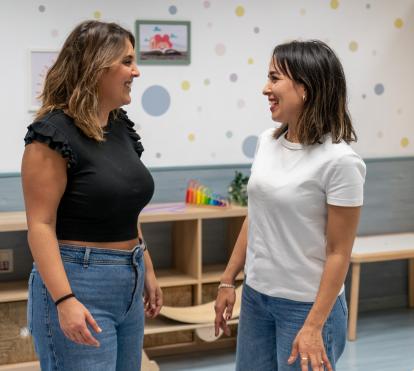
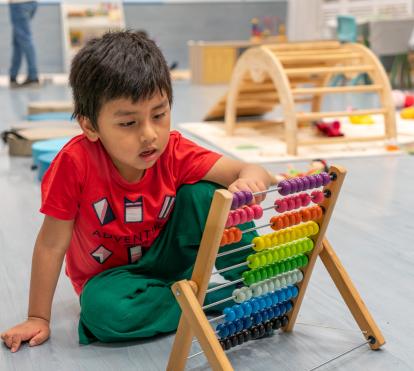
They have only been running this new service for a few weeks, but the initial response has been very positive: “The children come in delighted, they’re full of enthusiasm. We still need to keep working on establishing the routines, but so far it’s been really positive, they come in absolutely buzzing.” Families feel the same way: “Many of them already knew the space beforehand. They’d been involved in the 0–3 group in previous years, so it’s reassuring for them to come and leave their children,” López explains. She adds that parents “also have a weekly space where they can share their concerns about parenting and personal matters.”
For this educator, her work is also a source of personal fulfilment. “Working with the little ones is wonderful. Not only do they pass on their positive energy, but every achievement you see in them, every small step forward, and at this age there are many, gives you an enormous sense of satisfaction,” she says.
Another child attending this new service is Sara, aged four. Her mother, Fátima, describes her as “rebellious but also very affectionate”. She has a nine-year-old brother, Adam, who has also been through the programme. “I got to know Gazteleku about four years ago, through the school, because my son needed extra support. They really helped him with Basque and maths,” Fátima recalls.
Sara had been attending the Family Space 0–3 and is now continuing in the 3–6 group. “She comes home very happy. I think the games the educator plays with them really help children become more sociable, learn basic rules, say words, understand boundaries…,” her mother reflects. She is also grateful for the space it creates for families themselves: “Sharing our experiences as mothers, how to help our children, their education… We share so many different things.”
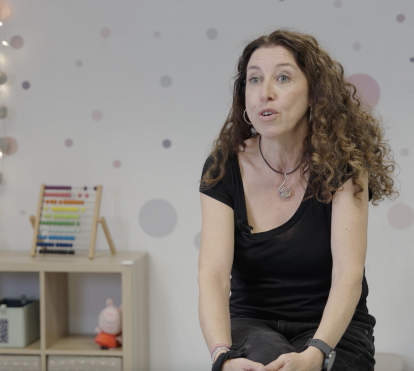
Arantxa Gutiérrez, a social educator with 30 years’ experience at the organisation, is now its coordinator for children and families. She explains that the association, which has spent nearly half a century supporting local families, has been part of the CaixaProinfancia network ever since the programme began in 2007. “For us it’s been a huge opportunity. It’s allowed us to establish ourselves more firmly in the community and to bring resources and support to the children and families we work with,” she says.
Eighteen years on, Gazteleku has once again been a pioneer by joining the pilot phase of CaixaProinfancia’s new Growth Spaces 3–6. “We’re taking part in this project because it really is an opportunity to bring back into the community a socio-educational space that’s incredibly important for children facing more difficult circumstances,” Gutiérrez explains.
For her, support during early childhood through projects like this is essential to ensure no-one is left behind. “If you don’t get this opportunity, things can be harder later on. You can tell when children haven’t taken part in programmes, haven’t explored things with their hands, haven’t read, haven’t listened to stories, haven’t been to the cinema… They’re clearly playing at a disadvantage,” she points out.
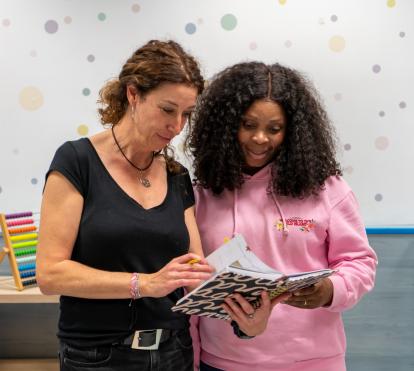
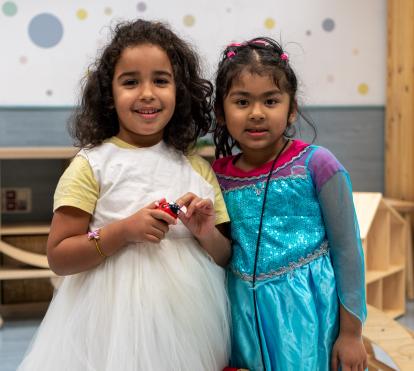
The service for children aged 0 to 3, and the one for those aged 3 to 6, share the same philosophy: putting children and families at the centre, with a holistic, personalised approach and a community focus that builds networks of support and opportunity. This approach is directly aligned with several articles of the Convention on the Rights of the Child.
Childhood cannot wait. Children’s wellbeing is the clearest indicator of the future we are building as a society. On this 20 November, the ”la Caixa” Foundation reaffirms its conviction: every child deserves to grow up with equal opportunities, surrounded by affection, stimulation and protection. Investing in early childhood is defending children’s rights.